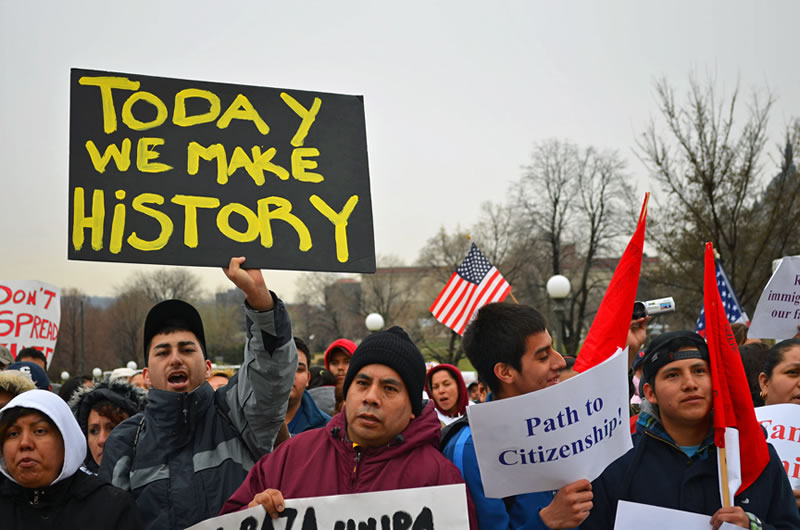

Share
Every May Day, millions of workers around the world celebrate International Workers Day, the original Labor Day. Here in the U.S., Labor Day is officially celebrated in September, and has lost its political and labor character. It is seen by many as little more than an end-of-summer barbecue. But the real origins of May Day can be traced right here to the United States and the bitter struggles of working men and women for better wages, rights, conditions, and the eight-hour day.
On May 1, 1886, tens of thousands of workers, many of them immigrants, held militant rallies across the country. The movement was particularly strong in Chicago, and two days later, police shot and killed four workers on a picket line. At a rally held the next day to commemorate the victims, a bomb thrown by an agent provocateur killed seven policemen. The police responded by killing several workers and injuring hundreds more.
This has become known as the Haymarket Riot. In the following weeks, the police carried out systematic raids on strikers and trade unionists, breaking up meetings with violence. As a result, several workers leaders were framed, tried, imprisoned, and sentenced to death. In the years that followed, it became a tradition that every May Day, workers around the world would strike and demonstrate for the 8-hour day. Many countries eventually made it an official holiday so that workers wouldn’t go on strike that day.
In 2006, millions of immigrant workers took to the streets of the U.S. and put the focus back on the working class origins of May Day. Immigrant workers are just like all other working people in the U.S. and around the world: they want decent jobs, safe housing, quality health care, a good education and a bright future for their children. They play an essential role in the economy, often doing some of the most back-breaking and lowest paid work, and they pay their taxes.
Yet they have few legal protections against abusive employers. The current attacks on immigrant workers are part of the attacks being faced by all working people. On this day of international workers’ solidarity, we invite everyone to get involved in the movement for immigrants’ rights by attending meetings, raising the issue in your trade union local, discussing with your co-workers, etc.
This article is reprinted from the website of the Minnesota Immigrant Rights Action Committee.

